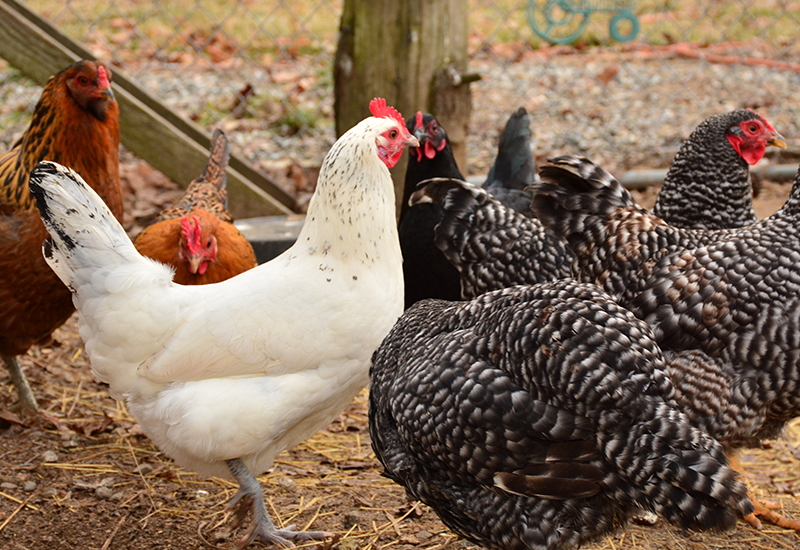Poultry and Birds
Stafford Veterinary Center Offers Farm Visits. Call Us for Details
Annual Examinations are Important for Birds
It is best if you bring your bird to see us for an annual exam. The best treatment for any condition is to catch it early, before your bird is showing any signs of illness. An annual exam allows us to determine the health status of your bird and gives us baseline records and baseline blood values for future reference in the event that your bird is ever sick. We also spend one-on-one time with you so we can answer all of your questions and can offer many solutions concerning behavior, environment and enriching your bird’s life with food, toys and other items.

Bringing your Bird to Stafford Veterinary Center
We recognize that coming to the clinic can be a stressful experience for any pet, particularly our bird patients. Your bird may be more comfortable in a quiet, dark place for traveling, so talk to us about the appropriate carrier for your size and type of bird. If possible, acclimate your bird to his bird carrier prior to your visit with us. It’s also very important to keep your bird warm during transport. Warm water-filled bottles or microwavable gel packs work well as long as they are wrapped with a cloth to prevent direct contact with the bird.
Birds Are Masters at Hiding Signs of illness
Birds are very good at hiding their signs of illness, and to keep your bird healthy, you need to know when your bird is sick so you can call us right away to get medical care. Knowing and understanding was is normal will allow you to know when your bird is sick – it is common for the first signs to go unnoticed. Usually the first signs include:
- Changes in behavior, such as decreased activity level or decreased vocalization
- Decreased appetite – Remember that birds will pretend that they are eating, so don’t be fooled
- Diarrhea or persistent abnormal droppings
- Too much fluid in the droppings ((polyuria – too much urine)
- Fluffed feathers or changes in the feathers
- Changes in general appearance and posture
- Sitting on the cage bottom
Additional concerns are:
- Coughing, sneezing, abnormal breathing sounds
- Nasal discharge
- Frequent scratching at the nares or the side of the head
- Tail bobbing
- Weight loss
- Regurgitating, vomiting
- Change in water intake
- Weakness
Serious Signs of Illness
Please call us immediately if your bird is exhibiting any of these symptoms:
- Drooping wing or wings
- Falling off the perch
- Eyes closed with long periods of sleepiness
- Vomiting/regurgitation
- Frequent sneezing with or without discharge
- Discharge from nostrils, eyes, mouth or any part of the body
Please give us a call today to set up an appointment for your bird, so we can help you care for him or her the best way possible.

